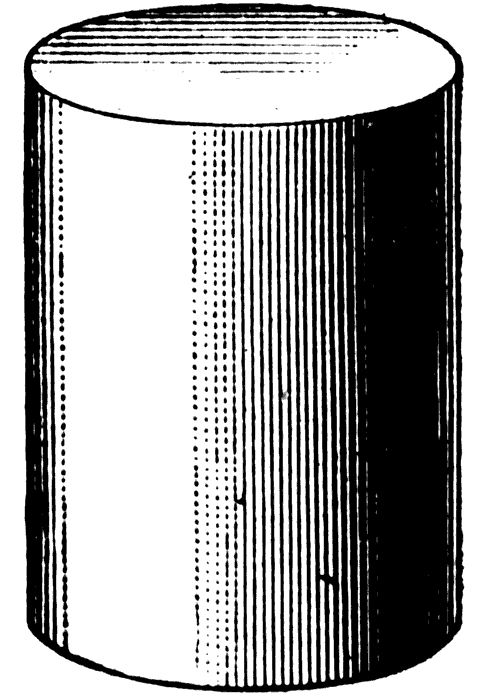 |
American Literature: Romanticism research assignment Student Research Submissions 2015 Research Post 1 |
 |
Marissa Holland
March
21, 2015
The
American and French Love/Hate Relationship: A Study of Poe and Baudelaire
Edgar Allan Poe as an American Romantic author was not always regarded as
a serious writer and was looked over by most critics of his time. For today’s
literature student, this fact is both perplexing and even comical as Poe has
always remained popular amongst readers and we have yet to see him disappear
from our syllabus. Because the readers have always enjoyed Poe’s work, is it the
quintessential case of the critics disagreeing with the general public? Was Poe
regarded in the same manner by other authors of his time? During my studies in
French Bohemianism, I was shocked to find an author, Charles Baudelaire, who not
only read and enjoyed Poe during the time he was publishing but also found
inspiration in Poe’s writing that influenced his own French writings. It is well
known throughout American history that France has been our reluctant ally and
that the two cultures seemed to represent the horrors of the other. What then
was it about Poe that appealed to Baudelaire and consequently the French
population? Why was Poe so popular in France but not his own country?
In his book Baudelaire, Emerson,
and the French American Connection: Contrary Affinities, author Dudley
Marchi first examines the elephant in the room in terms of the French/American
relations: they openly criticize the culture of the other. He states that while
French and the United States shared basic ideological similarities, they had
massive differing opinions in terms of political and especially cultural ideals.
What is most interesting from Marchi’s writing is that he makes the case that it
is not necessarily the political differences which drove the wedge but the
cultural. The French prided themselves on the aesthetics of culture and America
to the French public, as well as to Baudelaire, was seen as “uncivilized” with
no emphasis on aesthetics in regards to every aspect of the culture. This to
Marchi is important to note because it can help explain the popularity of Poe in
France. Like Poe, Baudelaire was not taken seriously as a writer in France
because of the nature of the content of his works. Both authors were victims of
their countries’ conservatism as the two men battled alcoholism and drug
addiction, which played a factor in their writing. They also both attacked their
cultures for artistic insensitivity in terms of their writing.
So if
Poe possessed so many similarities to Baudelaire who was not well received by
the French, how was Poe accepted? Through his work of translating Poe’s writing,
Baudelaire was able to weave Poe into the readings of the French population.
Because Poe was from the “half-civilized” world of America, his transgressions
against conservatism were forgiven by the French nobles and still enjoyed as
literature. In this way, Baudelaire was able to still publish an attack on the
French bourgeois without publishing his own work under his own name as he, as a
civilized French-man, would not have been forgiven for such outrageous speech.
Marchi states that, “Their work is thus an honest depiction of the complexity of
the human spirit and an embodiment of the failure to achieve an unattainable
romantic ideal,” (5).
Like
Marchi, author Elizabeth Duquette explores the connection of Poe to the French
culture in her article, “The Tongue of an Archangel: Poe, Baudelaire, Benjamin.”
Duquette makes the distinction that both Poe and Baudelaire were writing during
a time when literature had a very strict and distinct structure when it came to
form; both authors broke these molds when it came to their own writings. Poe
stated that he felt American literature had to compete with the literature of
the world, as America was a melting pot of cultures and was also just now
beginning to establish its own style in literature. Duquette takes this notion
and applies it the concept of “doubling” within Poe and Baudelaire. She states,
“Poe’s literary legacy [was] . . . constituted not only by the preservation of texts
but by Poe’s reproduction by other writers, in a process called doubling” (19).
Baudelaire would certainly fit this mold as he made his main source of income by
publishing his translations of Poe’s work and then found inspiration in form
which enhanced his own works. She continues, “For Baudelaire, the encounter
with Poe is a singularly emotional one, as he finds in Poe’s writings not only
shared ‘tastes, feelings, and habits of thought’ but actual ‘phrases’ from his
imagination written by the other man,” (20). Baudelaire felt he was able to take
the “scattered” thoughts of Poe and translate them into a more cohesive manner
that the French population was able to comprehend.
Duquette also shows how Baudelaire was able to connect Poe’s work to the French
cultural figures. She cites author Fritz Gutbrodt who states that the detective
characters of Poe’s work are flaneurs
in French culture. A flaneur is one who observes society by walking around the
city and making notes on people and their habits. This was a key figure in the
bohemian community that Baudelaire was writing within. This could then be seen
as another reason for Poe’s popularity in France as this was not a known figure
in American culture.
Throughout the research, it seems to be very well documented what about Poe
inspired Baudelaire as a writer. What is not so clear is just why Poe was so
well received in France even if he was only seen as the “half-civilized”
detective writer from America. It does not seem to sufficiently answer the
question as to why France so openly accepted an American writer into their
literature readings. What was also not found was if Baudelaire influenced Poe in
any manner and what Poe felt about his work being translated into a language
that could not always accurately represent Poe’s intentions. What was obvious
throughout the research was that both the American and French population held a
double standard when it came to authors such as Poe and Baudelaire publishing in
their own countries. Because it was not found if Baudelaire had any contact with
Poe, it would be beneficial to now research exactly what it was that influenced
Poe and if other French authors were used as models thus making a full circle to
this particular American/French literature exchange.
Works
Cited
Duquette, Elizabeth. “The Tongue of an Archangel: Poe, Baudelaire, Benjamin.”
Translation
And Literature 12.1 (2003): 18-40.
MLA International Bibliography. Web.
March 1, 2015.
Kujawinski, Frank. “Lesmian and Edgar Allan Poe.”
The Polish Review 33.1 (1988): 55-69.
JSTOR. Web. March 1,2015.
Marchi, Dudley M. Baudelaire, Emerson,
and the French-American Connection: Contrary
Affinities. New York: Peter Lang, 2011. Web.
Philips, Edith. “The French of Edgar Allan Poe.” American Speech 2.6 (1927): 270-274. JSTOR. Web. March 1,2015.
|
|
|
|


